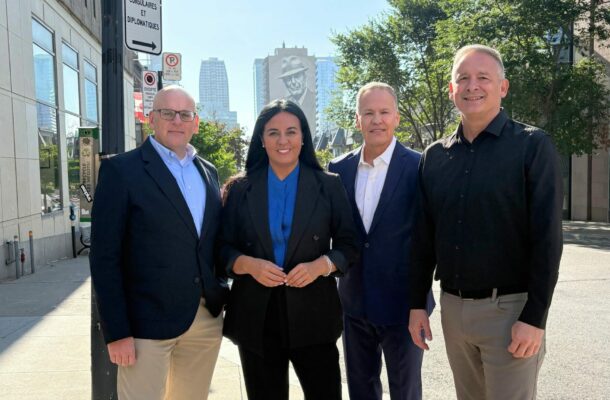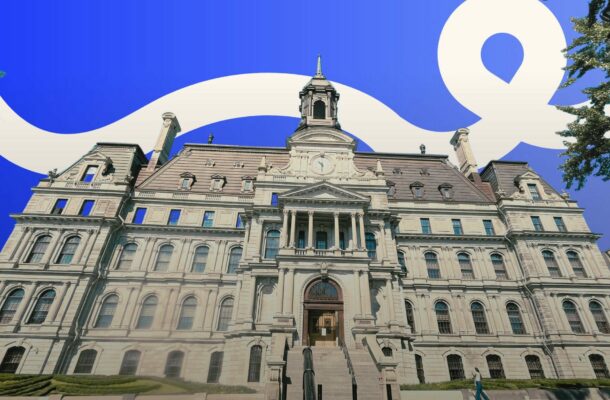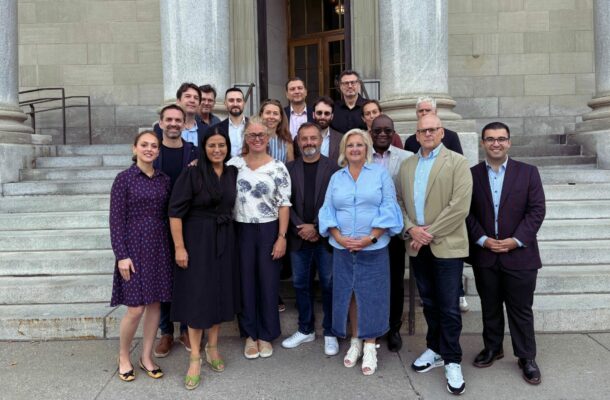Ensemble Montréal calls for a temporary tax reduction for downtown non-residential buildings

Montréal, September 9, 2020 – Because downtown Montréal is currently experiencing an unprecedented crisis due to the COVID-19 pandemic, Ensemble Montréal’s elected councillors will present a motion at the next city council asking the Québec government for the exceptional and temporary right to reduce the total tax burden for non-residential buildings located downtown.
“The exceptional character of this proposal corresponds to the exceptional nature of our downtown crisis. Retailers need concrete assistance right now. Let’s not forget that Montréal has the highest non-residential property taxes in Canada. As for the solutions presented so far by the Plante administration, they just don’t make the grade,” declared Mr. Lionel Perez, leader of Ensemble Montréal.
The idea of offering a reduction in property taxes for non-residential buildings in the downtown area was proposed a few months ago by the Chamber of Commerce of Metropolitan Montréal (CCMM) and the Urban Development Institute of Québec (UDI) in their respective briefs submitted during the city’s pre-budget consultations.
“Downtown merchants are currently living through a perfect storm: office towers are empty, students are staying home and tourists are nowhere to be seen. And we have no idea how long this situation will continue. Pedestrian trails and street entertainers are all well and good, but downtown merchants really need a financial boost to get them through the year,” said Aref Salem, economic development spokesperson for Ensemble Montréal.
Ensemble Montréal’s motion (see below) will be tabled at the September 21 municipal council meeting.
_____________________________________________
Motion to temporarily reduce the tax burden on non-residential buildings in downtown Montréal
Whereas the City of Montréal is the city most affected by COVID-19 in Canada and has undergone a greater isolation period than the rest of Québec;
Whereas the vitality of the downtown area is the cornerstone of Montréal’s economy and that of Québec;
Whereas downtown Montréal is the main international showcase for the city and all of Québec;
Whereas downtown Montréal is home to a large number of office towers and, according to a study by the Altus Group, only 5 to 10% of the work space in Québec office towers has been occupied since the beginning of the pandemic;
Whereas, according to Yves Lalumière, President and CEO of Tourism Montréal, the city will welcome only 1 million tourists in 2020 instead of the usual 11 million, which will have a greater impact on downtown and Vieux Montréal, where the tourism industry is concentrated;
Whereas the downtown area, particularly Rue Sainte-Catherine West, has been undergoing major work since January, limiting its appeal to Montrealers and merchants’ revenues;
Whereas, according to the Canadian Federation of Independent Businesses, only 14% of downtown Montréal merchants have managed to regain pre-pandemic sales levels, compared to 18% in Toronto and 22% in Ottawa, underscoring that Montréal’s economic recovery is slower;
Whereas the last property assessment roll was tabled a few months before the pandemic, became effective July 1, 2020 and will be in effect for three years;
Whereas the Institut de développement urbain du Québec has noted a decrease in the value of buildings in the downtown area since the pandemic began and indicates this may result in an imbalance between the 2019 assessment roll and real values;
Whereas the City of Montréal cannot, of its own accord, reduce the property tax by geographic district although the situation requires it;
Whereas Appendix E of the Charter of Ville de Montréal (chapter C-11.4) defines the boundaries of downtown Montréal;
Whereas the Chamber of Commerce of Metropolitan Montréal and the Urban Development Institute of Québec have requested a temporary decrease in the non-residential property tax rate for downtown Montréal;
It is proposed by Lionel Perez, Leader of the Official Opposition and City Councillor for the Darlington district
Seconded by Alan DeSousa, Mayor of the Borough of Saint-Laurent
And by Aref Salem, City Councillor for the Norman-McLaren
district;
That the City of Montréal request from the Québec government the exceptional and temporary right to reduce the total tax burden for non-residential buildings located in the zone delineated by Appendix E of the Charter of Ville de Montréal (chapter C-11.4) and that this measure be effective for the 2021 fiscal year.




